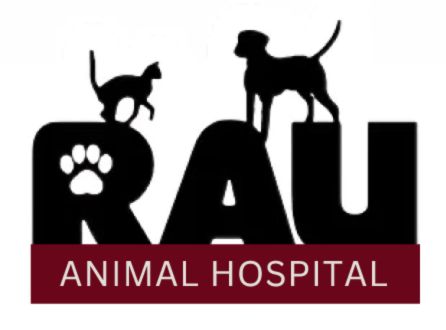
What Are The Core Dog Vaccinations?
Core puppy and dog vaccinations are considered vital to all canines based on a universal risk of exposure, the severity of disease, and the risk of transmission to other dogs and other animal species including human beings.
The American Animal Hospital Association's Canine Task Force considers the following dog vaccinations to be core:
- DHPP (Also called “the canine distemper vaccine”, this vaccine protects against four canine viruses: Distemper, Hepatitis, Parvo, and Parainfluenza)
- Canine Parvovirus
- Hepatitis
- Rabies
Non-core vaccines include:
- Bordetella (Kennel Cough)
- Canine Influenza (Dog Flu)
- Leptospirosis
- Lyme vaccine
Although these vaccines are not considered Core, they are important for most dogs who may be exposed to these infectious diseases. At your dog's next appointment, we will be happy to review which of the above makes the most sense for your dog and make the appropriate recommendations.
Rabies vaccinations are required by law in most states, including PA. Owners must periodically have their dogs and puppies vaccinated against rabies, but the specific time frames for puppy vaccinations and dog vaccinations vary by state.
- In PA, the puppy rabies vaccine is generally given at 16 weeks ( no earlier than week 15), and the rabies vaccination is good for one year.
- For adult dogs, the rabies vaccination is good for three years and should be addressed at the first visit for new patients. For example, a puppy would receive the rabies vaccine at 16 weeks, 1 year, and then again at age 4.
Are There Optional Dog Vaccines?
Although puppy and dog vaccinations are important to the overall health and wellness of your canine companion, not every puppy or dog needs to be vaccinated against every disease. Some canine vaccinations should only be administered depending upon factors including age, medical history, environment, travel habits, and lifestyle. Therefore, it is very important for us to discuss the vaccination protocol that's right for your canine companion at your next appointment.
Vaccination Schedule
In general, a puppy should start vaccines as soon as you get the puppy (this is usually between 6 and 8 weeks) and then every three weeks until approximately four months of age when it will receive the final round. We typically recommend the following vaccination schedule for puppies:
- When dogs come in for their first one-year visit, we recommend boostering their DHPP, Leptospirosis, and Rabies vaccines as well as Canine Influenza and Lyme if the lifestyle of the dog requires these vaccines. If Kennel Cough (Bordetella) is due at this time, it should also be administered.
- Once your puppy reaches adulthood, and all of the core puppy vaccines have been administered, your veterinarian can begin implementing an adult dog vaccination schedule.
It is important to stay current with your puppy's vaccine schedule. Puppy vaccinations have been medically proven to combat many preventable diseases and illnesses that can occur without proper immunizations. Adhering to a puppy vaccine schedule is synonymous with responsible puppy care. Your puppy deserves every chance to be healthy and happy for life and vaccinations play an important role. Don't run the risk of your puppy contracting one of these terrible diseases, when they are so easily preventable
** Click here to access AAHA Canine Vaccination Guidelines **
Side Effects And Risks Associated With Dog Vaccinations
The benefits of vaccinations far outweigh any risks. Adverse reactions to dog vaccines are rare. However, As with any medication or immunization protocol, puppy vaccinations and dog vaccinations can cause some side effects. We do recommend that you have your puppy or dog vaccinated at time when when you can monitor them after the vaccination.
If your dog does experience any reaction to vaccinations, symptoms may include:
- Fever
- Sluggishness
- Loss of appetite
- Facial or paw swelling and/or hives
- Vomiting
- Diarrhea
- Pain or swelling around the injection site
- Collapse, difficulty breathing, and seizures (anaphylactic shock)
Just as with human vaccines, mild symptoms can be ignored. The majority of reactions are mild and short-lived. If you suspect a more severe reaction to puppy vaccines or dog vaccines, such as facial swelling, vomiting or lethargy, you should contact your veterinarian immediately.
